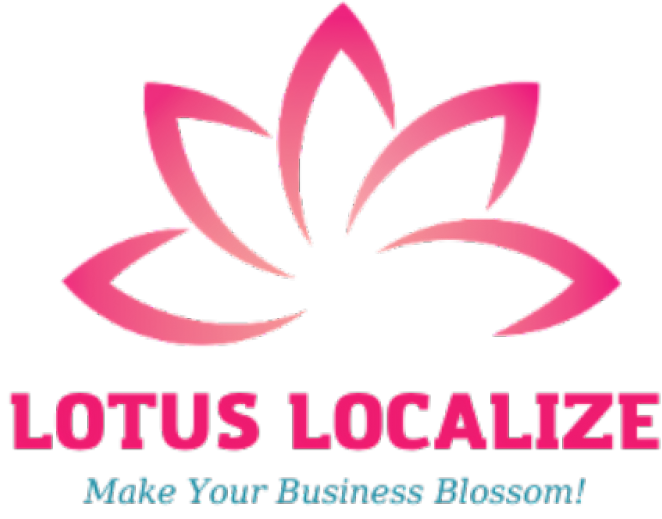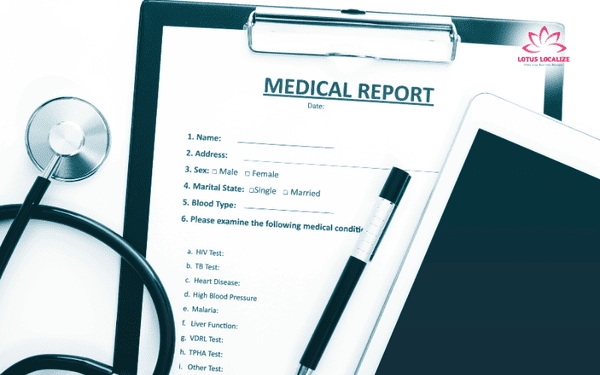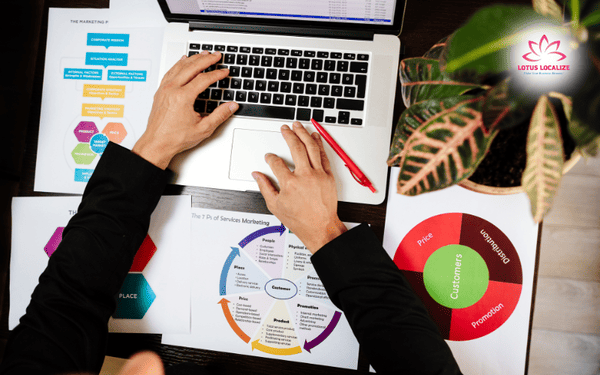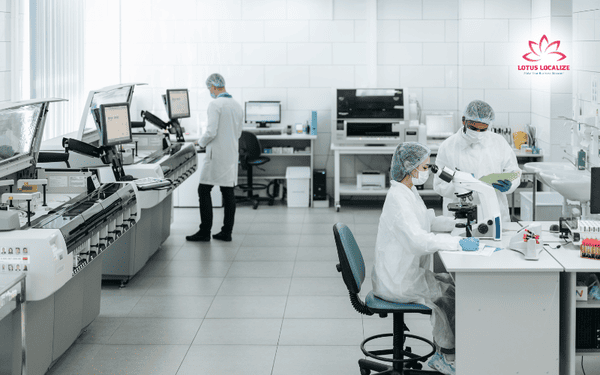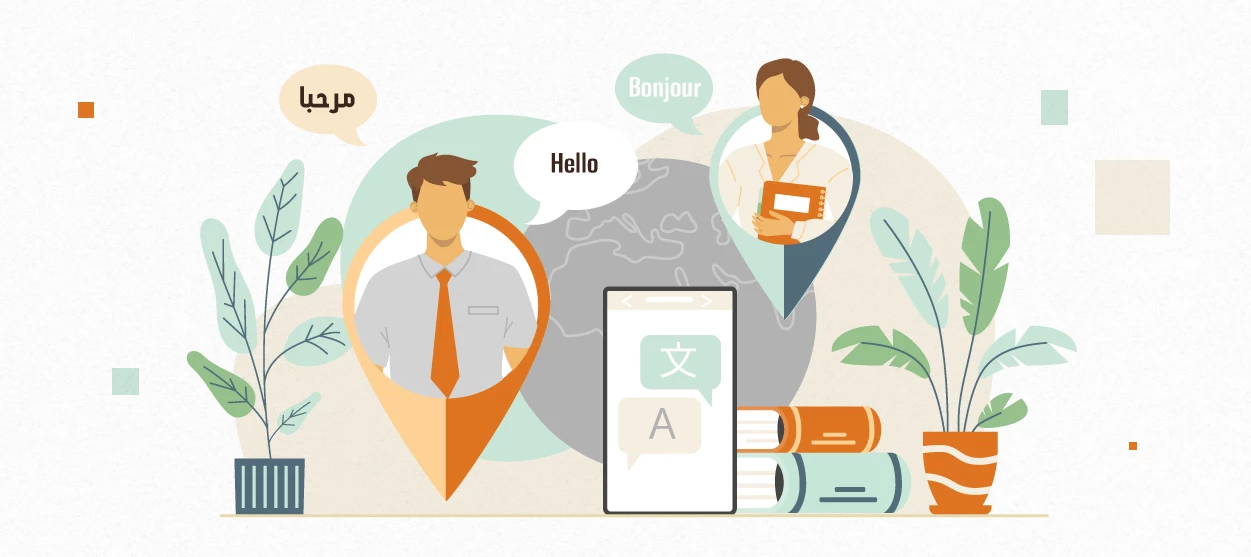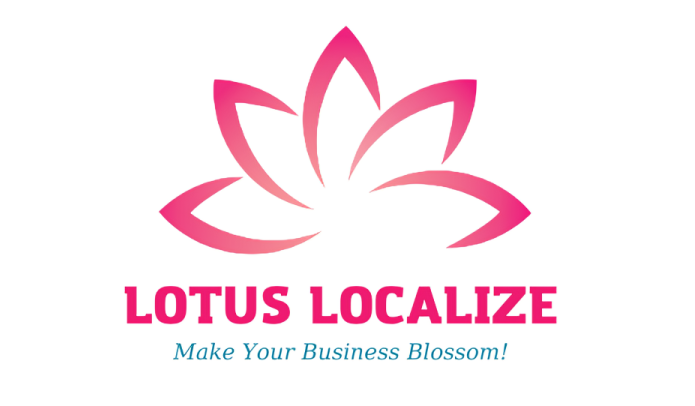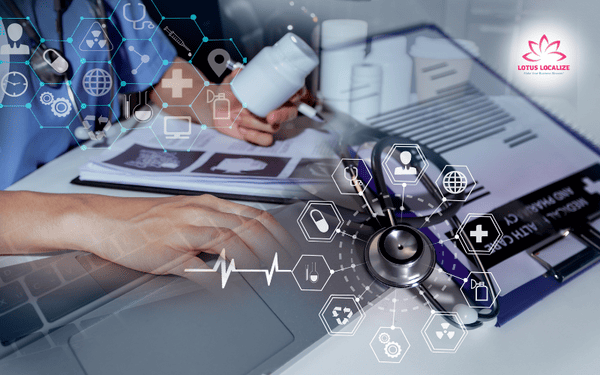
How healthcare translation enhances global health services and patient trust
In today’s globalized healthcare environment, communication barriers can have life-threatening consequences. Healthcare translation ensures that patients, medical staff, and organizations are aligned, regardless of language differences. By fostering clarity and trust, healthcare translation plays a vital role in improving patient outcomes and access to medical services globally.
What is healthcare translation?
Healthcare translation refers to the specialized translation of medical documents, communications, and patient interactions across languages. This type of translation requires precision, cultural understanding, and adherence to legal standards, as it involves sensitive medical information.
How is healthcare translation different from general translation?
Unlike general translation, healthcare translation demands an in-depth understanding of medical concepts and terminology. A mistranslation in this context could cause severe harm, such as a misdiagnosis or incorrect treatment. Translators need to be familiar with medical processes and procedures to ensure every term is accurately conveyed.
Types of healthcare documents requiring translation
Healthcare translation is applied to a wide range of documents, including:
- Medical records: Used for sharing patient histories with healthcare providers across different countries.
- Patient instructions: Help patients follow treatments and post-care procedures accurately.

- Pharmaceutical labels: Provide essential information on dosages, usage, and side effects.
- Consent forms: Ensure patients understand their rights and treatment options before proceeding.
- Clinical trial protocols: Translate research documents to recruit participants from various regions.
- Insurance claims: Allow patients to process healthcare payments efficiently across borders.
Read more: Understanding the vital role of medical interpreters in healthcare
Why is healthcare translation important?
In healthcare settings, communication errors can result in serious or even life-threatening outcomes. Miscommunication between healthcare providers and patients may lead to:
- Misdiagnosis: Incorrectly translated symptoms or medical histories can lead to the wrong diagnosis, delaying proper treatment.
- Improper treatment: Errors in translating prescriptions, dosage instructions, or treatment plans can cause complications, risking the patient’s health.

- Patient non-adherence: When patients don’t fully understand their treatment instructions, they may unintentionally skip or misuse medications.
- Medical liability risks: Inaccurate translations can lead to non-compliance with regulations, exposing healthcare providers to legal repercussions.
Healthcare translation ensures clear communication, preventing errors that could impact both patient health and trust. It also enhances patient safety by making medical instructions and documents accessible to non-native speakers, improving the overall quality of care.
Key challenges in healthcare translation
Healthcare translation presents unique challenges that require precision and subject matter expertise. Below are some of the major challenges translators encounter:
1. Medical jargon and complex terminology
Healthcare documents contain highly specialized terms like “angioplasty” or “bronchoscopy,” which can be difficult to translate accurately.
- Impact of inaccuracies: Misinterpreting technical terms could lead to inappropriate treatments or misinformed decisions.
Solution: Translators need access to medical glossaries and collaboration with healthcare professionals to ensure accuracy.

2. Cultural differences
Healthcare practices and concepts often vary between cultures. For example, the perception of pain or the willingness to seek mental health treatment differs globally.
- Impact of inaccuracies: A lack of cultural sensitivity can result in misunderstandings between doctors and patients, negatively affecting care quality.
Solution: Translators must adapt content while maintaining cultural relevance, ensuring patients feel understood and respected.
3. Legal compliance and regulatory requirements
Healthcare organizations need to meet strict legal standards, such as GDPR (EU) or HIPAA (USA), when translating patient data or consent forms.
- Impact of inaccuracies: Failure to comply with legal requirements can lead to penalties, lawsuits, and compromised patient privacy.
Solution: Certified translators familiar with healthcare regulations ensure that documents meet the necessary legal standards.
4. Time sensitivity and urgency
Medical translations are often required urgently, especially in emergency situations or for time-sensitive trials.
- Impact of delays: Slow or inaccurate translations can delay critical care or disrupt clinical trials, jeopardizing patient outcomes.
Solution: Leveraging translation memory tools and professional translation teams helps meet tight deadlines without compromising accuracy.
Accurate healthcare translation is essential for patient safety, operational efficiency, and legal compliance. Overcoming these challenges requires skilled translators with both linguistic and medical expertise, supported by technology to ensure consistent and reliable results.
The role of professional healthcare translators
Hiring certified healthcare translators is essential for ensuring that medical information is conveyed accurately and clearly across languages. In healthcare, even minor translation mistakes can have severe consequences, making professional expertise indispensable.
Why certified translators are essential
Certified healthcare translators possess the specialized skills and qualifications needed to handle complex medical content. Their certification ensures they meet industry standards for both linguistic ability and subject matter expertise.
- Minimizing risks: Certified translators follow strict quality guidelines to prevent errors that could lead to misdiagnosis or treatment delays.
- Ensuring compliance: Many healthcare providers and regulatory bodies require certified translations to comply with legal standards such as HIPAA or GDPR.

Knowledge in both the medical field and the target language
Healthcare translators must be fluent not only in the target language but also in medical terminology. This dual expertise enables them to navigate complex documents, such as:
- Medical records and diagnostic reports: Translators need to interpret clinical notes and patient histories with precision.
- Pharmaceutical labels and instructions: Correct dosage and usage instructions must be communicated without ambiguity.
- Consent forms and legal documents: These require an understanding of both legal language and healthcare regulations.
Professional translators must also be aware of medical abbreviations and understand context-specific terms—for example, knowing that “CC” can mean “cubic centimeter” in a dosage or “chief complaint” in a patient report.
Technology and tools for translation accuracy
While human expertise is vital, technology enhances the translation process by improving efficiency and consistency. Some of the tools commonly used include:
- Translation memory software: This tool stores previously translated content to ensure consistency across similar documents.
- Glossaries and termbases: These resources provide quick access to approved medical terms and prevent misunderstandings.
- Machine translation with human post-editing: For urgent projects, machine translation can be used as a first draft, followed by expert human review to ensure accuracy.
By combining human expertise with advanced tools, professional healthcare translators deliver precise and reliable translations. This blend of skills and technology ensures that patients receive accurate information, healthcare providers meet regulatory requirements, and global medical
Read more: Why aviation translation is vital for success in the aerospace industry?
Benefits of accurate healthcare translation
Accurate healthcare translation is essential for delivering effective patient care and maintaining the integrity of healthcare systems. Here are some of the key benefits:
- Enhanced patient safety: Clear and precise translation of medical instructions reduces the risk of misunderstandings, ensuring that patients receive the appropriate care and medications. Accurate communication of dosage, usage instructions, and potential side effects can significantly lower the likelihood of medical errors.
- Improved treatment adherence: When patients fully understand their treatment plans and follow-up procedures, they are more likely to adhere to prescribed therapies. This understanding is crucial for chronic illness management, where consistent treatment is vital for patient outcomes. Effective communication fosters an environment where patients feel empowered to take charge of their health.
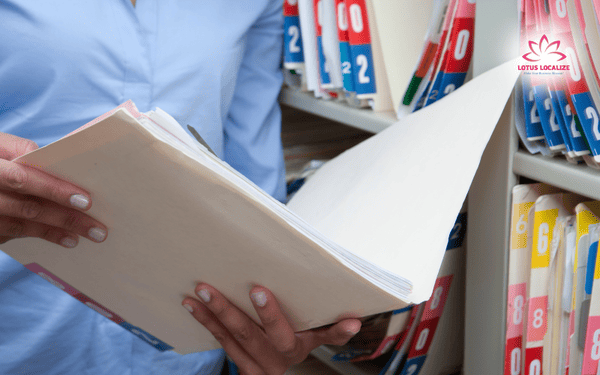
- Increased patient satisfaction: Effective communication between healthcare providers and patients builds trust and enhances the overall patient experience. When patients feel understood and can express their concerns in their preferred language, their satisfaction with the healthcare system increases. This, in turn, leads to better patient retention and loyalty.
- Compliance with regulations: Accurate translation ensures that healthcare documents meet legal and regulatory requirements, such as HIPAA in the United States or GDPR in Europe. Properly translated documents protect healthcare providers from legal risks and potential penalties associated with non-compliance, enhancing their operational integrity.
- Seamless access to healthcare services: In today’s globalized world, accurate healthcare translation enables patients to seek medical care across borders. Whether it’s for treatment in another country or participating in international clinical trials, effective translation ensures that patients can navigate foreign healthcare systems confidently, leading to better health outcomes.
By investing in accurate healthcare translation, healthcare providers can improve safety, compliance, and patient satisfaction while enabling a more connected and effective healthcare delivery system.
Healthcare translation in the age of globalization
Globalization and migration have reshaped the healthcare landscape, increasing the demand for multilingual communication. As people move across borders, the need for accurate healthcare translation becomes critical to ensure everyone has access to quality medical care, regardless of their native language.
Increasing demand for healthcare translation
Healthcare providers now serve diverse populations, where patients often speak different languages or come from distinct cultural backgrounds. Accurate translation is essential to bridge language gaps, enabling patients to understand their medical conditions and treatment options. Some key factors driving the growing demand for healthcare translation include:
- Medical tourism: Patients travel abroad for advanced treatments, requiring accurate translation of medical records, prescriptions, and discharge notes to ensure continuity of care.

- Immigration and refugee populations: Migrants and refugees often need healthcare services in their host countries, and translated documents are essential for diagnosis, treatment, and social support programs.
- International clinical trials: Pharmaceutical companies and research organizations conduct trials across multiple countries, making multilingual consent forms, protocols, and study results necessary to meet compliance and ethical standards.
The role of healthcare translation during global health crises
Global health crises, such as the COVID-19 pandemic, have highlighted the critical role of healthcare translation in disseminating accurate information quickly and efficiently. During these emergencies, clear communication is essential to prevent misinformation, provide timely guidance, and ensure public safety.
- Public health announcements: Translated announcements ensure that non-native speakers can follow vital instructions about social distancing, mask mandates, and vaccination campaigns.
- Medical guidelines and protocols: Multilingual translation of treatment protocols helps healthcare professionals worldwide share knowledge and adopt best practices in patient care.
- Vaccination campaigns: Informational leaflets, consent forms, and appointment reminders in multiple languages promote vaccination uptake across different communities.
- Cross-border collaboration: Global health agencies like the World Health Organization (WHO) rely on translated reports and data to coordinate international efforts in containing outbreaks.
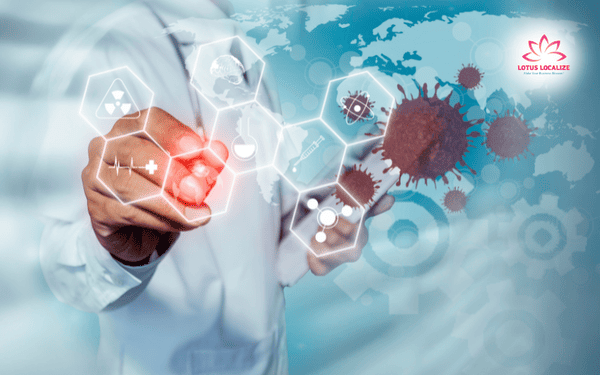
Accurate healthcare translation ensures that crucial information is accessible to everyone, regardless of language barriers, fostering trust between patients and healthcare providers. In a globalized world, it plays a pivotal role not only in daily healthcare operations but also in managing public health emergencies efficiently. As migration continues to rise and healthcare services expand across borders, the demand for professional translation services will remain essential to safeguard global health.
Healthcare translation is more than just a linguistic service—it’s a vital component of patient care. By ensuring clear and accurate communication, professional translation helps prevent medical errors, promotes patient safety, and enhances trust between patients and providers.
As the world becomes more interconnected, the demand for healthcare translation will continue to grow. Healthcare providers must invest in reliable translation services to meet the needs of a diverse and global patient base. With precise translation, healthcare isn’t limited by language—it becomes accessible to all, fostering better health outcomes worldwide.
Lotus Localize offers professional document translation for many industries: software translation, government translation, marketing translation, legal translation, financial translation,… ensuring your message resonates—whether in writing or speech. Let us help you bridge linguistic gaps and connect with audiences worldwide.
Contact us today at our hotline or Whatsapp: + 84 866 224 968 or visit the websites: dichthuathoasen.com/en/. Let Lotus Localize accompany you in bringing products, people, and culture to the global stage, and together, we’ll create miracles!
QUALITY PROMISE
At Lotus Localize, we are dedicated to delivering high-quality services and ensuring the utmost satisfaction in every client project. Our team of translators and staff consistently exert effort and adhere rigorously to quality management procedures. This commitment guarantees that each project progresses seamlessly, meets deadlines, and exceeds our clients' expectations.
